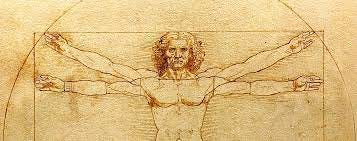Full Stack Human
The Liberal Arts as a "Stack" for flexible skills for the era of AI
When we think about future skill development the knee-jerk reaction for the last decade has been summed up in a pithy acronym, “STEM.” Science, Technology, Engineering, and Math has become the blithe response of anyone looking for the least offensive and most-accepted answer at a cocktail party when the topic of education or the future of work comes up. As a venture capitalist, or long before that, it’s been in my DNA to disagree with the status quo, and the lazy answers to hard problems. Hard problems require real thinking, and anything summed up in four letters is not. Lazy consensus thinking that sits within the comforts of posturing and punditry doesn’t help solve anything meaningful. I’m not going to peddle other cocktail sound bites like “first principles” either, though that’s at least arguably better fare.
Full Stack Human is a more complex idea of development that doesn’t fit neatly into a box, but rather blurs the lines of subjects often seen as outdated, or irrelevant. It applies a technology paradigm to how we think about holistic person development. For example, to build a web application we might use something called LAMP stack which stands for Linux, Apache, MySQL, and PHP. These are the various languages and databases that underpin, or provide the foundation, for a good web app. Similarly we might think about the “Liberal Arts” stack as helping establish holistic people who can pull from these various foundational elements, lenses, and modalities of thought.
Full Stack Human builds on the ideas of my last book, The Fuzzy and the Techie, to give people not only permission to study the humanities and social sciences alongside technology, but rather the recommendation and the obligation in this era of AI. To see the whole picture it’s vital people get exposure to the full “stack” of Liberal Arts.
Full Stack Human concedes that AI will in fact make inroads into rote, routine, and perhaps even marginally creative tasks, and this in turn “up-skills” humans into more critically thinking, more collaborative, more creative beings. We must, therefore, continue to invest in the breadth of education that prepares leaders and line soldiers for the realities of the present, namely that AI is coming for your rote tasks. I wouldn’t go so far as to say AI is going for your job (at least not most), but AI, especially if we refine and reverse those letters to say IA, or intelligence amplification, is coming for the rote and routine tasks you probably already hate and could do away with. AI is your new best friend, and your ambitious but imperfect new intern.
To train up as a full-stack human requires the full breadth of coursework. We might sum up the Liberal Arts Stack as a number of foundational layers topped with technology. In other words technology is the application layer on top of the infrastructure layers that are the holistic, broad-based, Liberal Arts:
Biology/Sciences - Origin
Politics/Economics/Social Sciences - Interaction
Psychology - Motivation
History - Success and Failure
Literature - Empathy
Philosophy - Rationalization
Music/Art/Dance - Expression
Technology - Application
My friend Rishi Jaitly and I will be exploring this concept in a new course at Virginia Tech in Spring 2024 as part of the new center for Leadership in Technology, and we’d be open to helping establish similar “Full Stack” courses at other universities. This idea of Full Stack Human is the blending of humanities, sciences, and technology, and treating the Liberal Arts as the infrastructure “stack” for the technology application layer phase. This is a fundamental departure from the ways STEAM, or HEAT (Humanities, Engineering, Art, and Technology) overlook the difference between infrastructure and application and treat subjects not as sequential but parallel.
Treating education as a “stack” can enable us to think more deeply around foundational layers, and application layers, like we do in technology. By becoming “Full Stack,” or a Renaissance Person, we can gain the truly immutable skills of flexibility and adaptability that not only persist, but thrive, in an intelligence amplification, or IA-driven world. It’s time we got past the debate of X versus Y and realize it’s about building holistic foundational infrastructure for broad-thinking, open-minded, bias-sensitive individuals evaluating new application layers that are the ever-changing landscape of technae, or man’s attempt to harness nature.
Let’s reimagine the Liberal Arts not as competing with STEM, but as the infrastructure layer beneath the dynamic technology debates that will be ongoing. And let’s not also overlook the fact that technology itself can also be and become infrastructure insofar as it’s laying new groundwork within society. We must have flexibility of mind not only in what we teach students, but also how we self-evaluate.
Also if you’d like to collaborate on these ideas, please join us at Full Stack Human, a media company and collective of educational, policy, and corporate leaders who believe that our technological future is deeply human, and its up to us to reignite the self-inquiry and disciplines that give us our comparative advantage against AI.





Can't wait to see the syllabus! I'm gonna read all the books on it. To really pull out the Full Stack analogy it'd be fun to, in the course, actually write a full stack, say, calculator app. I bet it'd make the two stacks even more viscerally real for students :)